First a bit about me… I created this website to chronicle my travels since hitting the road in December 2011. Living in my camper as a full timer now for nearly 13 years. From 2014 through 2018, I worked part of each year for an RV dealer in Casper, Wyoming. During my “stay”, I worked closely with the dealership’s finance and sales managers. Both men had much experience in the RV industry. I learned much about the RV industry and RV loans in particular during that time. In 2016, I wrote a post that shared insights on RV loans. This post, published in the summer of 2024 is a significant and timely update to the information I shared about RV loans at that time.
Following my days working for a now long gone RV dealer, I developed a Concierge RV Buying and Selling Service through which my clients receive my best efforts to get them the right camper at the best possible price or to sell their camper safely and get far more for it than they would receive by trading it in or perhaps even selling it on their own.
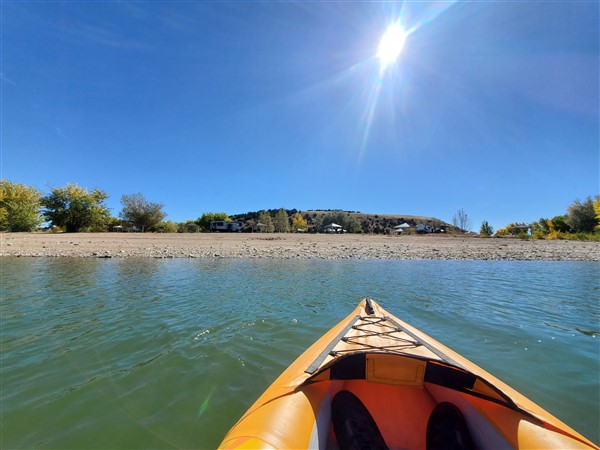
This leads me to the topic of RV Loans – what you NEED to know when purchasing a RV Camper. Having knowledge in this area is critical as an RV Camper is likely to be the second greatest dollar purchase of your life. Next only to the purchase of your home.
July 28: SMOKE AND HAZE from nearby (and distant) fires…
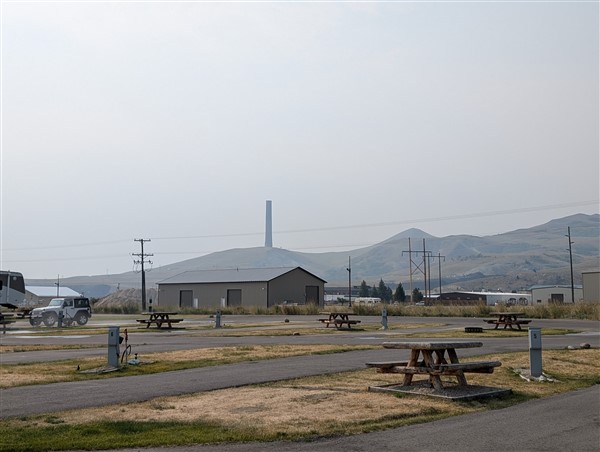
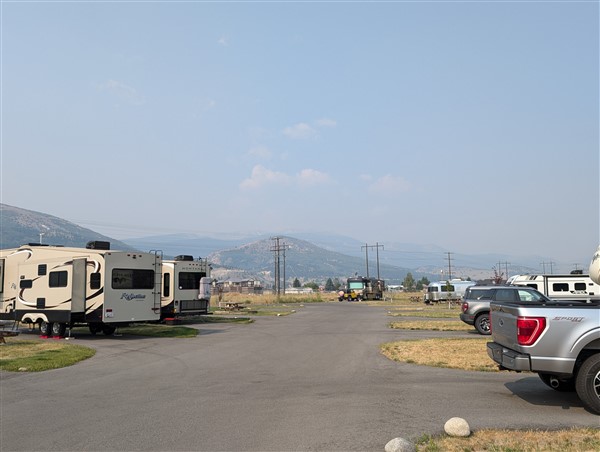
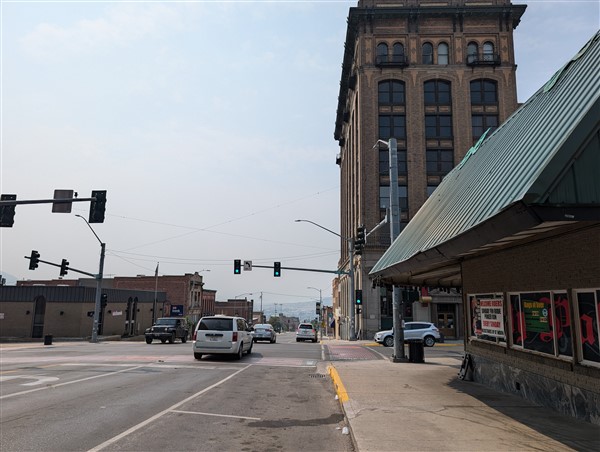
RV Loans – let’s start with the basics
An RV loan is a “recreational loan.” It is fundamentally different from car, truck and home loans in several key ways. Vehicles and homes are considered necessities, RV’s are not. Rv’s are considered to be luxuries, as such:
- RV loans carry a higher interest rate than car and truck loans or home mortgages
- RV loans have longer terms than car and truck loans – currently up to 20 years!
- Banks hold Recreational Loan borrowers to a higher standard (credit score) than car/truck/home borrowers
- Prior experience with significant loans (at least 1/2 of what you want to borrow on an RV) may be required by the lender
A major potential pitfall: RV Loans – Interest before Principal
As with most (if not all) loans, rv loans are structured for you as the borrower to pay off interest owed before principal. This becomes a very significant issue if you overpay for an RV camper OR buy a new RV and then try to unload it (sell it) “shortly” after purchasing it.
To make the point here, let’s say you borrow $50,000. at 8% for a 15 year term. Two or three years later you decide to get rid of your camper and perhaps get a new one. The sad reality is most of what you’ve paid the lender to date is interest and not principal. Thus if you borrowed $50,000, after 2 years, you may still owe more than $49,000.
If you didn’t make a hefty downpayment, it’s likely you owe FAR more than the current value of the camper. In other words, you’re upside down. Know that campers, particularly NEW campers depreciate FAR more and FAR faster than any car or truck!
Note: When I was in RV sales, most often if the buyer had good enough credit, they opted to put ZERO down on the camper they were buying from us. This “set the stage” for a disaster down the road if they decided to sell or trade the camper for another!
Are you thinking of becoming an RV’er OR getting a new (or new to you) camper?
I personally offer a Concierge RV Buying (and Selling) Service. I serve as a “guide by your side, who also has your back.” My service covers the entire buying and/or selling process. You can check out my service HERE. Be sure to scroll to the bottom of the page to hear what my clients have to say.
A REAL “case study”
Recently, I received a phone call from a prospective client who was prepared to hire me (through my Concierge RV Service) to help him sell his fifth wheel trailer. It was an expensive, large 5th wheel. Typically, these campers do NOT sell well. He told me he owed about $90,000. on his two year old camper. I did some research and advised him that “on a good day” I expected his camper to sell for $58,000. in the private seller market. This made him $32,000. upside down! In other words, if I succeeded at getting him a buyer to pay $58,000. for his camper, he would still have to stroke a $32,000. check to his lender to pay off the loan!
Incidentally, had he taken his camper to a dealer, they would have valued his camper (at best) at $35,000! So from their perspective, he was $55,000. “under water.”
Remember, dealers ALWAYS want to make money on the camper they’re taking as a trade-in. Often dealers will try to hide the REAL value they’re placing on a camper being traded in. They do this by inflating the trade-in value and discounting the new or new to you camper you’re purchasing LESS than they otherwise would have.
Bottom line: When trading in (almost never recommended), pay attention to the DIFFERENCE you’re going to pay the dealer. The absolute numbers of either the trade-in or camper the dealer is selling you can be “played with.” (I offer an example in the following section.)
Downpayments
Not too long ago (perhaps as recently as 2019), it was common for those with excellent credit to get an RV loan with 0% down. In this current environment where banks are “tightening” and protecting themselves, expect at least 10% down to be expected. As I noted above, this will work to your favor if you decide to sell the camper after just a couple of years. The downpayment and amount you’ve paid down on the principal when you sell just might keep you from being upside down!
It’s all about the DIFFERENCE…
True Story (and a pointed example): When I was working for the RV dealership, I once had a customer who was trading in their camper. The deal looked like this: Ours was $60,000. We valued theirs at $20,000. The difference: $40,000.
When I presented this offer to the couple, I could see the wife didn’t like it. I then offered this:
I offered them $30,000. for theirs, ours was now $70,000., the difference? STILL $40,000.
It was a “tongue-in-cheek” way of educating them that we were being honest in our valuation of their trade and the difference is ALL that matters! Of course, some buyers would rather hear their camper is worth $30,000 instead of $20,000 even if it does not change the “difference” due at all!
Even when I purchased my Super Duty Ford Truck… (and another example!)
I’ve found many folks, including sales people struggle with this concept. In 2022, I purchased a Ford super-duty (F350, Lariat.) When I ordered it, they knew I was trading in a 2015 super-duty. The salesperson UNwisely told me they were planning upon marking up the purchase price of my new truck.
I told the salesperson I didn’t care if they charged me $250,000. for the truck (retail was $77,000) AS LONG AS they valued my trade at $215,000! The salesperson did not seem to grasp my point! Oh well. (The General Manager however understood my perspective.)
Current Recreational Loan interest rates
AT BEST you MIGHT score a 7.00% offer for RV camper financing. The best offers will come from Credit Unions, and having an existing relationship with a credit union helps. Credit unions however often have shorter terms which translates into higher monthly payments.
Most offers I’m seeing are at 8.5% or higher – and that is ONLY for new campers IF you have outstanding (800+) credit.
Further, some credit unions are not keen on financing private purchases and others balk at long distance (out of state) purchases. Check with your Credit Union’s loan officer to find out in advance their terms and conditions for a loan.
Banks also offer recreational loans. Terms can run to 20 years. Three national banks that want your business include Southeast Financial, US Bank, and Bank of the West. You may also find your local bank offers such loans.
What if you don’t have outstanding credit?
In most cases, anyone with a credit score of about 700 or less will either have a tough time getting a recreational (rv) loan OR will pay an excessive interest rate. I know of one buyer with a score in the high 600’s who was offered a 22% interest rate!
Important tip: READ YOUR CONTRACT and know how much interest you’re paying for this “toy.” At 8% or higher, on a 10+ year loan, interest can really add up. For example, if you borrow $50,000. for just 10 years at 8%, you’ll be paying over $22,000. in interest! Draw out the same loan and rate to 15 years and you’ll pay over $36,000. in interest! Remember: 8% is on the LOW end of what most borrowers will be offered these days (Summer 2024.)
One can only imagine how much interest you’re paying if your rate is 22%!
Need “tried and true” RV Accessories and related equipment?
Dealer financing vs. Obtaining your own financing
Dealers make money when you finance through them. How they make money varies from state to state, but they DO make money.
Insider tip: You may increase your leverage with the dealer to get a better price if you offer to finance through them. This is a tactic I use for my clients who are utilizing my Concierge RV Buying Service.
Do your homework
Find out in advance if the price offered by the dealer has a built in discount for using dealer financing. Some of the “big boy” RV dealers are building in $2500. (or so) discounts with their “advertised price” IF you finance through them. And… if you don’t the price goes up 2500.!
Some dealers make money on financing by simply marking up the rate offered to them by their lenders. For this reason, if you shop for your own financing, you may find significantly better offers (in some states) than what the dealer offers you.
Also, per actions in the recent past by Congress, you should not receive multiple credit score “dings” for having multiple lenders run your credit for the SAME PURCHASE. Check with your credit reporting agencies (Experian, Equifax, Transunion) to confirm this and potentially contest it should your credit score get hit hard.
A quick tip on preserving the wealth embedded in your savings… I KNOW without a doubt the dollar is losing its value (purchase power.) I believe GOLD (and silver) serve as a “store of wealth” as the dollar devalues. Gold is great, but it isn’t practical to use gold to buy a cup of coffee… or is it? With GOLDBACKS, which contain as little as one one thousandth of an ounce of gold, you CAN buy a cup of coffee. AND… each day they’re gaining greater acceptance.You can look into GOLDBACKS here or click the image below.
Does it even make sense to go into debt on an RV at this time with high interest rates?
Yes, an RV is considered a luxury, but I can think of 3 “use cases” where going into debt is absolutely justified.
- You’re a traveling professional and you need a “home on the road” and want to avoid the commitments and cost of leasing apartments as you travel
- You’re a young family with kids who will appreciate and benefit from the travel and experiences you’ll have on the road
- You’ve worked your entire life and want to travel and experience great places while you’re young and healthy enough to take advantage of it
Add-on’s offered by the “F&I Office”: Don’t Fall for it!
If you finance through the dealer, during your closing they WILL try to roll the “extra crap” they try to sell you into the loan. I’m talking about Extended Service Contracts (extended warranties), Tire and Wheel policies, finishing treatments (protections), etc. Most of these are of dubious value, but the way they “get you” is to say something like “getting this extra will only add an additional $15. per month to your payments.” Well, if there are 240 payments (a 20 year loan), adding $15. per payment adds up to $3600. for that “extra” over the life of the loan! Be sure you KNOW what these extras are costing you IF you opt for them at all!
Is your loan deductible?
If your camper is used in the course of conducting some sort of business, it’s possible the interest on your loan (and other expenses) may be deductible. To be 100% safe, consult an accountant and do what’s legal!
Prepayment Penalties
In MOST cases prepayment penalties are a thing of the past (again thanks to Federal legislation decades ago.) To be certain, check with your lender OR the RV dealer’s finance manager.
As I noted earlier, offering to finance a camper may get you a better offer. Paying it off early or quickly will reduce the total interest paid. With my Concierge RV Buying Clients, I go over specific strategies to do this and NOT get in dutch with your credit reporting agencies!
RV Loans and Financing: Final Thoughts
RV’s are typically the second biggest purchase you’ll ever make. Thanks to higher interest rates in the past few years, it will cost you much more than about 2021 and earlier. Buying used avoids the initial (massive) depreciation experienced by most purchasers of new campers.
You may wish to review the points I’ve made in this entire article and if desired, contact me to discuss my Concierge RV Buying (and Selling) Service.
In closing, I welcome your thoughts and comments. You can leave them below. I read (and respond) to all. Further, I invite you to join my free newsletter below to be notified of new posts as they are released.
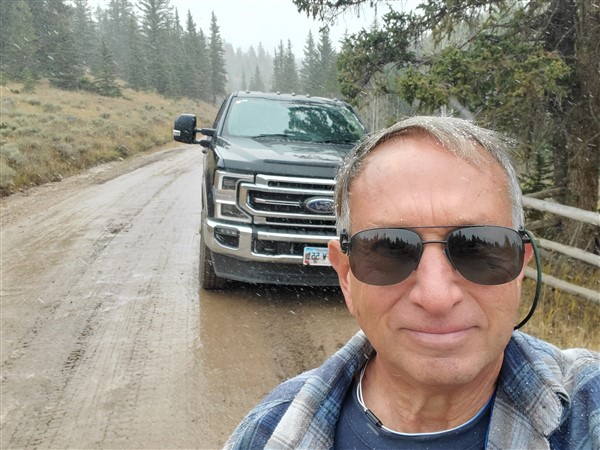
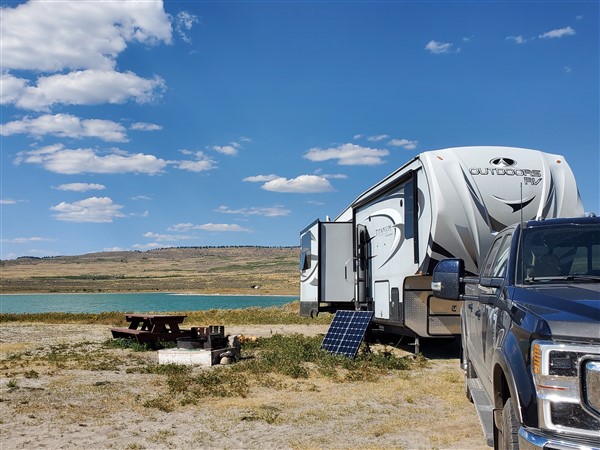
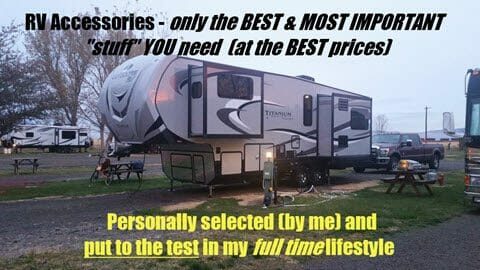
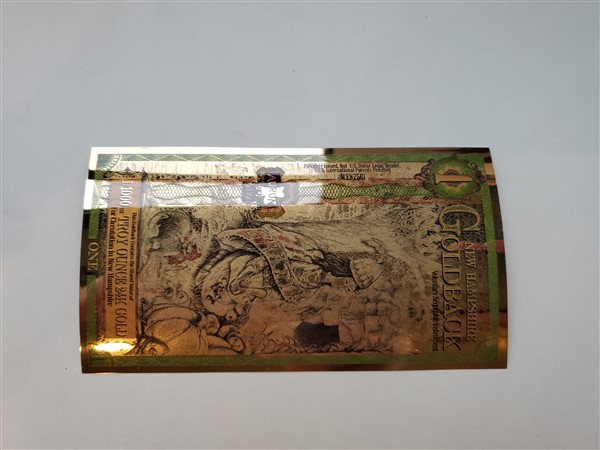
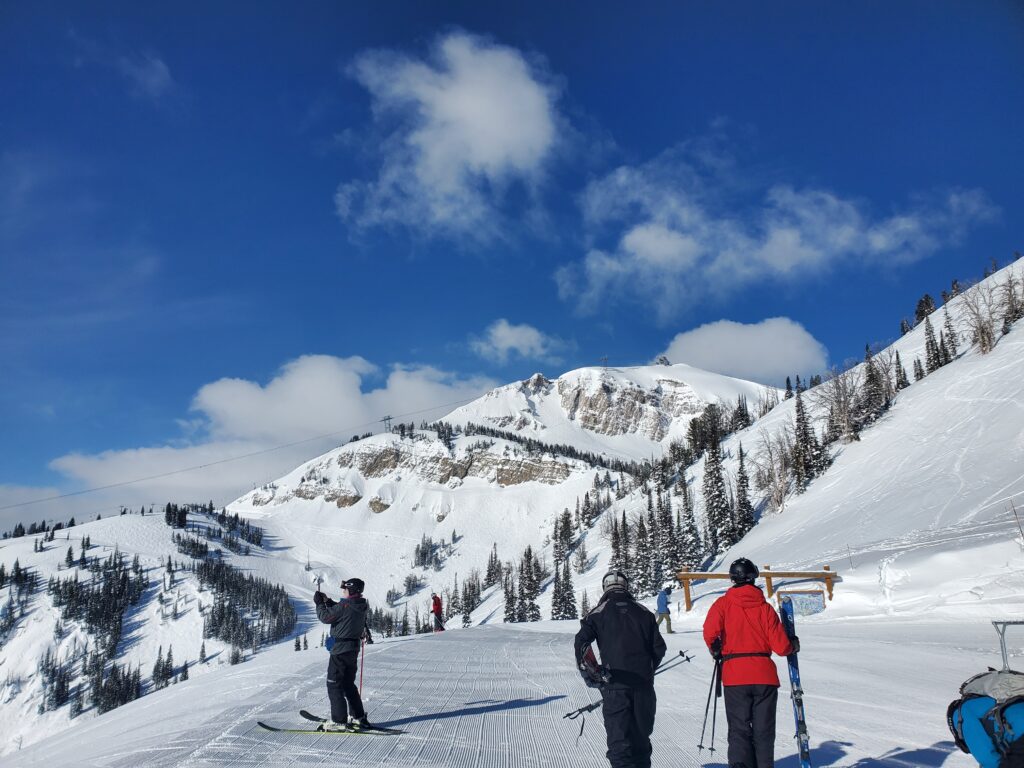
Great article. A wake up call for many.
Thanks Terry – the question is though… will they?
Once again you are on point! I have very recent experience with the finance department of an RV Dealer. I was well-advised and knew what to expect, because I hired you! I still feel this was a great decision, and everything you told me to expect, happened. We have outstanding credit (800+). Best offer from the dealer was through a credit union. After a small downpayment, I financed $57,160.32. 180 payments (15 years!) at 8.24% or $556.11 monthly. Finance charges if paid over time? $42,939.49 WOW. Here’s where you’re exactly right-The add-ons. They had 4 packages of different add-ons, all fancy names to include all or some of the items (Mechanical Protection, GAP-guaranteed asset protection, Tech, Appearance Protection, MS-Towable 4 Tires and TS (tire sealant). The deception? – just a small increase monthly payments over the entire 15-year period! I asked for individual prices of those packages. Here’s where it gets good. Mechanical Protection=10% of the cost of your camper, GAP=$1495, Tech (RV Tech Assistance on-call)=$495, Appearance Package=$3015, MS Towable and Tires=$2049 and finally just a Tire Sealant=$899. So-$14,000 in add-ons.
Richard its a big game! This is why folks (including yourself) come to me for my services to help them buy a camper AND avoid the pitfalls. The F&I office is where most dealers make the REAL money! Need proof? Look at the income finance manager’s make! (Many make well over $200k annually!)
If anyone wants more info on my Concierge RV Buying Service, please check https://rvacrossamerica.net/buysell and Thanks! Al